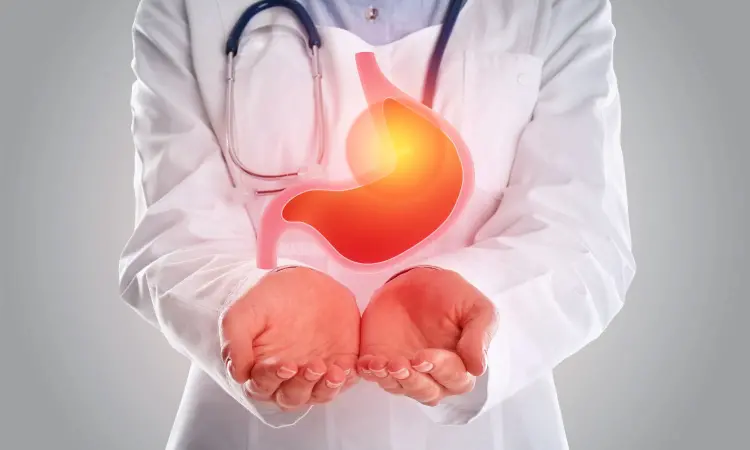- Home
- Medical news & Guidelines
- Anesthesiology
- Cardiology and CTVS
- Critical Care
- Dentistry
- Dermatology
- Diabetes and Endocrinology
- ENT
- Gastroenterology
- Medicine
- Nephrology
- Neurology
- Obstretics-Gynaecology
- Oncology
- Ophthalmology
- Orthopaedics
- Pediatrics-Neonatology
- Psychiatry
- Pulmonology
- Radiology
- Surgery
- Urology
- Laboratory Medicine
- Diet
- Nursing
- Paramedical
- Physiotherapy
- Health news
- Fact Check
- Bone Health Fact Check
- Brain Health Fact Check
- Cancer Related Fact Check
- Child Care Fact Check
- Dental and oral health fact check
- Diabetes and metabolic health fact check
- Diet and Nutrition Fact Check
- Eye and ENT Care Fact Check
- Fitness fact check
- Gut health fact check
- Heart health fact check
- Kidney health fact check
- Medical education fact check
- Men's health fact check
- Respiratory fact check
- Skin and hair care fact check
- Vaccine and Immunization fact check
- Women's health fact check
- AYUSH
- State News
- Andaman and Nicobar Islands
- Andhra Pradesh
- Arunachal Pradesh
- Assam
- Bihar
- Chandigarh
- Chattisgarh
- Dadra and Nagar Haveli
- Daman and Diu
- Delhi
- Goa
- Gujarat
- Haryana
- Himachal Pradesh
- Jammu & Kashmir
- Jharkhand
- Karnataka
- Kerala
- Ladakh
- Lakshadweep
- Madhya Pradesh
- Maharashtra
- Manipur
- Meghalaya
- Mizoram
- Nagaland
- Odisha
- Puducherry
- Punjab
- Rajasthan
- Sikkim
- Tamil Nadu
- Telangana
- Tripura
- Uttar Pradesh
- Uttrakhand
- West Bengal
- Medical Education
- Industry
Endoscopic Mucosal ablation safe and effective treatment option for refractory GERD

Japan: A recent study published in the Journal of Gastroenterology and Hepatology has concluded that Antireflux mucosal ablation (ARMA) ameliorates gastroesophageal reflux disease (GERD) symptoms in two-thirds of patients during short-term follow-up.
ARMA is an emerging endoscopic treatment to enhance the gastroesophageal junction flap valve. The main objective of this study was to evaluate its feasibility, effectiveness, and safety.
From May 2018 to December 2022, patients with symptoms of GERD that were refractory to acid suppression medication or dependent on such medications were enrolled in the ARMA. This retrospective analysis used prospectively collected data from an international, bi-center study. The study included GERD questionnaires, upper endoscopies, and 24-hour pH monitoring at 2 to 6 months and 12 months post-ARMA. The clinical success of the treatment was defined as a >50% reduction in validated GERD questionnaire.
Researchers in this study reported the following points:
- Sixty-eight patients underwent ARMA.
- Forty-four patients had definitive GERD, and 24 patients had reflux hypersensitivity.
- At 2–6 months and one-year post-ARMA, clinical success rates were 60% and 70%, respectively.
- There was a significant improvement in the median GERD-health-related quality of life score from 26 to 11 at 2–6 months.
- Among the 51 patients, constituting 71.8%, who underwent 24-hour pH monitoring, there was a decrease in median acid exposure time from 5.3% to 0.7%. A significant reduction in rates of esophagitis accompanied this.
- Multivariate analysis did not identify predictors of short-term success.
- A total of nine patients experienced transient stenosis requiring balloon dilation.
They said that ARMA demonstrated both technical feasibility and reproducibility as a safe procedure in this study. It effectively ameliorates GERD symptoms in two-thirds of patients during short-term follow-up. This procedure is suitable for both reflux hypersensitivity and confirmed GERD patients, regardless of their response to acid suppression medication.
Reference:
Shimamura Y et al. Clinical outcomes of antireflux mucosal ablation for gastroesophageal reflux disease: An international bi-institutional study. J Gastroenterol Hepatol. 2023 Oct 3. doi: 10.1111/jgh.16370. Epub ahead of print. PMID: 37787176.
BDS, MDS in Periodontics and Implantology
Dr. Aditi Yadav is a BDS, MDS in Periodontics and Implantology. She has a clinical experience of 5 years as a laser dental surgeon. She also has a Diploma in clinical research and pharmacovigilance and is a Certified data scientist. She is currently working as a content developer in e-health services. Dr. Yadav has a keen interest in Medical Journalism and is actively involved in Medical Research writing.
Dr Kamal Kant Kohli-MBBS, DTCD- a chest specialist with more than 30 years of practice and a flair for writing clinical articles, Dr Kamal Kant Kohli joined Medical Dialogues as a Chief Editor of Medical News. Besides writing articles, as an editor, he proofreads and verifies all the medical content published on Medical Dialogues including those coming from journals, studies,medical conferences,guidelines etc. Email: drkohli@medicaldialogues.in. Contact no. 011-43720751


